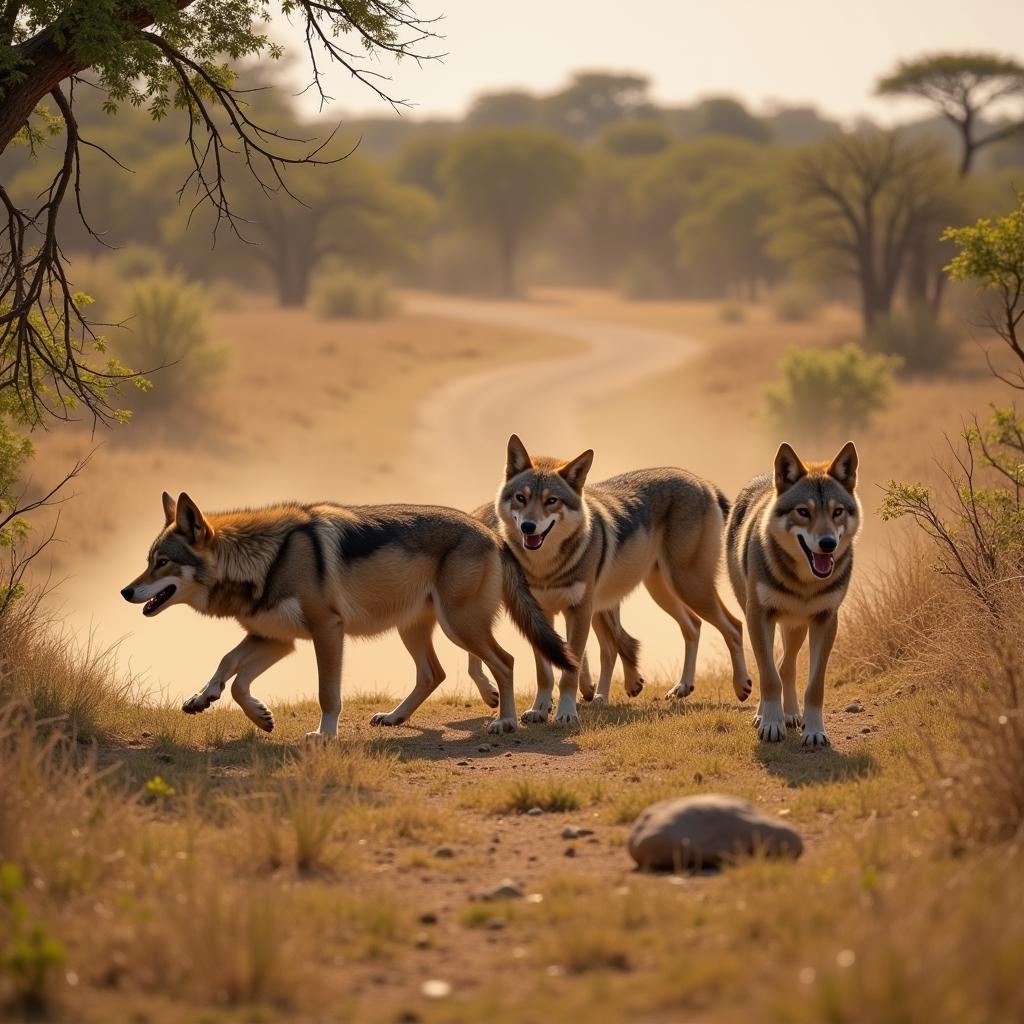Unveiling the Secrets of the African Wolf
The African Wolf, a captivating and often misunderstood creature, roams the vast landscapes of North and East Africa. This article delves into the fascinating world of the African wolf, exploring its unique characteristics, habitat, social dynamics, and the conservation challenges it faces. Learn about the remarkable adaptations that allow this canid to thrive in the harsh African environment and discover the crucial role it plays in maintaining the delicate balance of its ecosystem.
The Enigmatic African Wolf: A Closer Look
The African wolf, also known as the golden wolf, holds a unique position in the canid family. Genetically distinct from the Eurasian wolf, it represents a separate lineage with its own evolutionary history. Smaller and leaner than its Eurasian counterpart, the African wolf is characterized by its reddish-gold fur, long legs, and large ears, perfectly suited for dissipating heat in the arid African climate. Their diet primarily consists of small rodents, insects, and occasionally larger prey like gazelles or hares. This dietary adaptability is one of the keys to their survival in diverse habitats. They are highly social animals, living in packs led by a dominant breeding pair. These packs work together to hunt, raise pups, and defend their territory.
After a gestation period of roughly two months, the female African wolf gives birth to a litter of pups, usually between two and six. The pups are born blind and helpless, relying entirely on their mother for care. The entire pack participates in raising the pups, providing food and protection. This communal approach to child-rearing highlights the strong social bonds within the pack.
The African golden wolf is found in a variety of habitats, from the savannas and grasslands to the mountainous regions of North and East Africa. Their ability to adapt to these varied environments speaks to their resilience. You might be interested in reading more about the african golden wolf on our site.
Threats and Conservation Efforts for the African Wolf
Despite their adaptability, African wolves face numerous threats. Habitat loss due to expanding human settlements and agriculture is a major concern. They are also often persecuted by farmers who view them as a threat to livestock. Disease outbreaks, particularly rabies and canine distemper, can also decimate populations. Fortunately, several organizations are working to protect the African wolf. These efforts focus on mitigating human-wildlife conflict, promoting sustainable land management practices, and conducting research to better understand the species’ ecology and behavior. Furthermore, public awareness campaigns aim to educate communities about the importance of conserving this unique canid. Learning more about other African canids, like the african dog, can help us understand the broader conservation challenges facing these animals.
“Conservation efforts must prioritize community engagement,” explains Dr. Fatima Mohamud, a leading wildlife biologist specializing in African canids. “Local communities play a vital role in protecting these animals, and their involvement is essential for long-term success.”
 African Wolf Pack Hunting in the Savanna
African Wolf Pack Hunting in the Savanna
Understanding the African Wolf’s Ecological Role
The African wolf plays a crucial role in maintaining the health of its ecosystem. As an apex predator, it helps regulate prey populations, preventing overgrazing and maintaining biodiversity. By scavenging on carcasses, they also contribute to nutrient cycling. Understanding the intricate connections within the food web emphasizes the importance of conserving the African wolf and its habitat.
“The African wolf is a vital component of the African ecosystem,” notes Dr. Joseph Ekwe, a renowned ecologist. “Its presence ensures the balance and stability of the environment.” For instance, you can learn more about a related species, the aardwolf, by visiting our page on aardwolf african mammals.
Conclusion
The African wolf, a remarkable and often overlooked predator, plays a vital role in the African ecosystem. Understanding its unique characteristics, the challenges it faces, and the ongoing conservation efforts is crucial for ensuring its survival. Let’s continue to support the initiatives aimed at protecting this magnificent creature and preserving its habitat for future generations. Learn more about the african golden wolf population and the african golden wolfof congo.
FAQ
- What is the scientific name of the African wolf?
- What is the average lifespan of an African wolf?
- What are the primary threats to the African wolf population?
- What is being done to conserve the African wolf?
- Where can I find more information about African wildlife conservation?
- How do African wolves communicate within their packs?
- What is the role of the African wolf in its ecosystem?
If you need further assistance, please contact us at Phone Number: +255768904061, Email: kaka.mag@gmail.com or visit our address: Mbarali DC Mawindi, Kangaga, Tanzania. We have a 24/7 customer support team.

